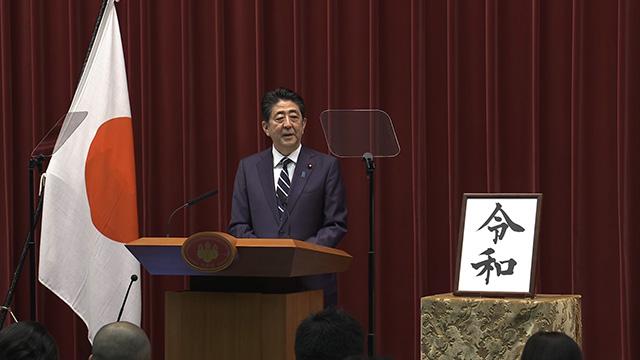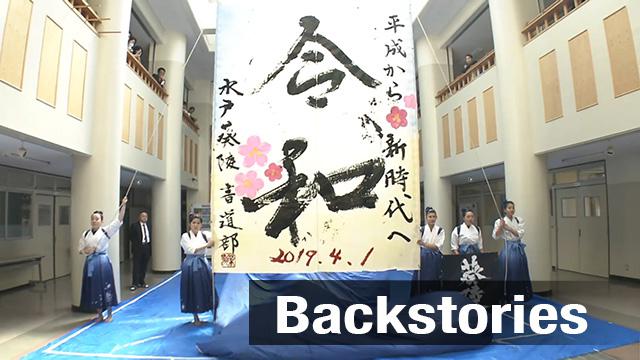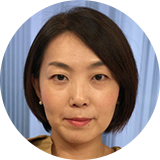A careful selection process
The Japanese government took numerous steps in choosing the era name, including discussions with experts and the heads of both houses of the Diet. NHK has learned that the government submitted six candidates to the expert panel. They were "Eiko," "Kyuka," "Koshi," "Banna," "Banpo," and "Reiwa." Three of the names reportedly come from Chinese classics. Two, including "Reiwa," were taken from classical Japanese literature. One was derived from both Japanese and Chinese classics. The final decision to select "Reiwa" was made in a Cabinet meeting attended by all ministers.

The Japanese government has explained that Reiwa's two Chinese characters mean "beautiful harmony." They were taken from the passage of the oldest existing anthology of Japanese poetry, the Manyoshu:
"In this auspicious month of early spring,
the weather is fine and the wind, gentle.
The plum blossoms open like powder before a mirror while the orchids give off the sweet scent of a sachet."
Some experts say it's the first time in the country's history that an era name was taken from domestic literature, and that past names were taken from classical Chinese literature.
The day the new era name was announced, Prime Minister Shinzo Abe revealed that the name represents the hope that all Japanese people will be able to blossom like a plum flower after a severe winter.

"On peaceful days, we can foster culture and appreciate natural beauty. With heartfelt gratitude for those peaceful days, we will carve out a new era that is brimming with hope," Abe said.
"Reiwa," the sound of the new era
NHK interviewed Japanese literary scholar Susumu Nakanishi, who is widely believed to have proposed the name "Reiwa." He remained silent about who suggested the name, but spoke about its significance.
Nakanishi is a Professor Emeritus at the International Research Center for Japanese Studies. In the interview at his home in Kyoto City, he said that as a citizen, he is delighted "Reiwa" has been well-received in Japan since it was announced on April 1st.
"The reason I think it's good is because of its pronunciation, or the way it rings," said Nakanishi. "It is rare for an era name to start with an 'R' sound like 'Reiwa.'"

Story behind the two Chinese characters "Rei" and "Wa"
Nakanishi is the leading authority on the Manyoushu.
He says the Chinese character "Rei" would match the native Japanese word "uruwashii," meaning beautiful.
"What makes 'uruwasii' different from just 'beautiful' or 'good' is that it carries with it such notions as orderly, consistent and tidy."
89-year-old Nakanishi also explained the meaning of the other character, "Wa." "The last war claimed three million lives in Japan alone and Japan should not go to war ever again. The character 'Wa' means peace, or represents a society that everyone is a part of where members each have their own values and live harmoniously. Japan has a mission to deliver this message across the world."
Nakanishi said he places a great deal of hope on the character "Rei" and is looking forward to the new era.
"'Rei' also means respect, which I believe is most important for all human beings. We can't develop without it. We can become a higher and better version of ourselves with respect and by working together. The new era name seems to offer a significant opportunity for each of us to think and act."
Era names have been a central part of Japanese culture for centuries, and "Reiwa" will do the same for the foreseeable future.

